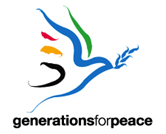HRH Prince Feisal Al Hussein Attends International Olympic Truce Foundation Annual Meeting
June 6, 2013
Generations For Peace Founder and Chairman, impotent HRH Prince Feisal Al Hussein, viagra yesterday attended the International Olympic Truce Foundation’s (IOTF) Annual Meeting in New York.
Member of the IOTF Board since 2012, HRH Prince Feisal joined high profile figures from around the world to report on activities over the past year and discuss plans for the period ahead.
The IOTF was established by the International Olympic Committee (IOC) in 2000 to promote the Olympic ideals to serve peace, friendship and understanding, and in particular, to promote the ancient Greek tradition of the Olympic Truce. In addition, the IOTF’s actions aim to initiate conflict prevention and resolution through sport, culture and the Olympic ideals, by cooperating with various inter and non-governmental organisations in the field through the development of educational and research programmes and communications campaigns.
The IOTF Board comprises representatives from the Olympic Movement, the UN, political institutions and other individuals who are engaged in promoting peace and international understanding.
Updating the IOTF Board on the work of Generations For Peace, HRH Prince Feisal said: “Since our last Annual Meeting, we have created new Advanced-level training, to continue our investment in the development of our most experienced volunteers.
“Over the last year, we have conducted an incredible 94 programmes, which address violence in different forms: violence between tribes, ethnic groups, or religions; gender inequality; the exclusion of minorities such as IDPs, refugees or people with a disability; and the challenges of post-conflict rehabilitation, reconciliation and reintegration.
“Our field research, led by our Generations For Peace Institute, is providing real evidence of programme impacts including reductions in different forms of violence; increased capacity to manage conflict in non-violent ways; changes in attitudes and shattering of stereotypes; greater understanding, respect and trust between communities in conflict; strengthened networks and social capital; greater empowerment of girls and women; and greater volunteerism and youth engagement.”


